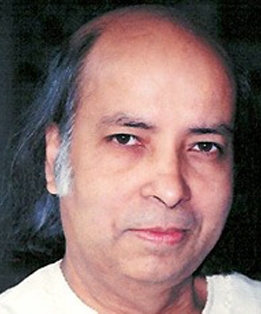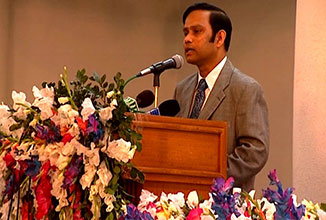
Dr. Sajed Kamal
AltWheels Regional Heroes: Bringing power to people
Boston , MA
Current and recent roles:
International educator on sustainable energy; adjunct lecturer on renewable energy and sustainable development in the Sustainable International Development Program at Brandeis University; a founder and steering committee member of Solar Boston; international consultant involved in setting up renewable-energy pilot programs in the U.S., Bangladesh, Sri Lanka, Armenia and El Salvador.
Greening work:
Teaching and consulting on renewable-energy projects such as installing solar systems. Recently awarded the “Mayor's Green Award for Community Leadership in Energy and Climate Protection” by the City of Boston and a community-service award by the Fenway Community Development Corp.
Inspiration:
He developed an interest in the alternate-energy movement during his involvement in student protests of the Vietnam War. He viewed the action as a struggle for control over land and resources and saw in the growing militarization in the Middle East the potential for similar confrontations. After organizing a forum in 1969 titled “The Middle East: The Next Vietnam?” at Northeastern University in Boston , he turned his attention to learning about solar-photovoltaic systems utilized in space research and technology as an alternative to oil.
Impact of work:
He feels that credit for changes in the use of renewable energy should be shared between the people who make it possible. However, he also recognizes that his project launches in other countries spurred additional growth and investment in alternative energy. In addition to the great educational work he does worldwide, his use of solar energy to power lights and small appliances in his home has set an excellent example for the many people who visited him. His hope is that a growing, grassroots use of alternative energy will allow a transfer of power to people, not only as an energy source, but also by bringing economic and political power to people as we move toward a sustainable lifestyle.
Economics of work:
Specific figures may be estimated as to potential kilowatt hours generated and the number of pounds of carbon-dioxide emissions offset as benefits of the solar-photovoltaic systems he has helped to install in the Fenway and elsewhere. However, it is very important to him for people to be made aware of the true costs of non-renewable energy. He wants people to understand the energy sources most often used are highly subsidized and very expensive when the cost is calculated to include not just a price per gallon but also the costs of supporting war, the environmental impact, and medical costs directly or indirectly tied to the use of fossil fuels












